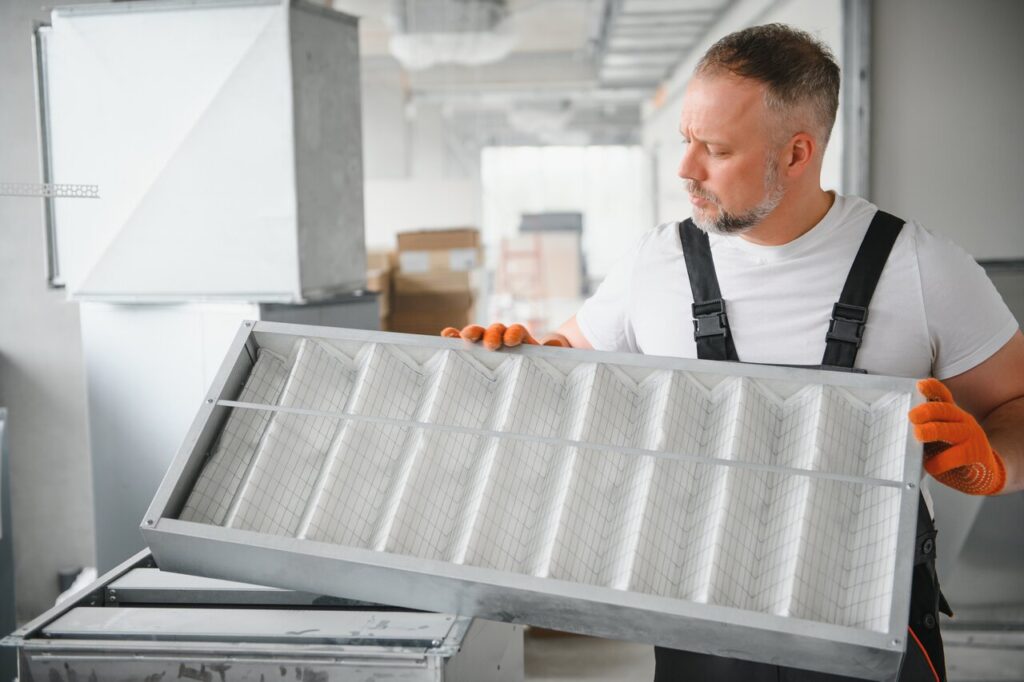Indoor air quality plays a crucial role in maintaining a healthy and comfortable living environment. Many homeowners are unaware of the various sources of indoor air pollution that can affect their health. From dust and pet dander to volatile organic compounds (VOCs) and mold, numerous factors contribute to poor indoor air quality. Understanding these sources is the first step in creating a cleaner and healthier home.
Understanding the Sources of Indoor Air Pollution
Indoor air pollution stems from various sources within your home. Common pollutants include dust, pet dander, mold spores, and volatile organic compounds (VOCs) emitted from household products and chemicals. Dust and pet dander can easily accumulate in your living spaces, especially in homes with pets or carpets. These particles can trigger allergies and respiratory issues, affecting overall health.
Mold spores are another significant contributor to indoor air pollution. Mold thrives in damp and poorly ventilated areas, such as bathrooms and basements. When mold spores become airborne, they can be inhaled, causing respiratory problems and exacerbating conditions like asthma.
VOCs are chemicals released into the air from various products, including cleaning agents, paints, and even furniture. These compounds can cause short-term effects like headaches and dizziness, as well as long-term health concerns. Identifying and understanding these sources of indoor air pollution is crucial in addressing and mitigating their effects.
Effective Air Filtration Systems
Air filtration systems are essential for maintaining good indoor air quality. These systems work by trapping airborne pollutants and preventing them from circulating throughout your home. Our professionals can recommend and install air filtration systems that are specifically designed to address the unique needs of your household.
One of the most effective types of air filtration systems is the High-Efficiency Particulate Air (HEPA) filter. HEPA filters can capture up to 99.97% of particles as small as 0.3 microns, including dust, pollen, and pet dander. Installing a HEPA filter in your HVAC system can significantly reduce the concentration of these pollutants in your home.
In addition to HEPA filters, our technicians can install activated carbon filters, which are effective at removing odors and VOCs. These filters use activated carbon to absorb and neutralize volatile chemicals, enhancing air quality further. Regular replacement and maintenance of these filters ensure they continue to perform at their best, providing clean and healthy air for your home.
By utilizing effective air filtration systems, you can achieve a significant improvement in indoor air quality, contributing to a healthier and more comfortable living environment.
The Role of Regular HVAC Maintenance
Regular maintenance of your HVAC system is essential for maintaining good indoor air quality. Over time, HVAC systems can accumulate dust, dirt, and other debris, which can then be circulated throughout your home. This buildup can also reduce the efficiency of the system, causing it to work harder and increasing energy consumption.
Our technicians provide thorough HVAC maintenance services to ensure your system operates at peak efficiency. This includes cleaning and replacing filters, inspecting and cleaning ductwork, and checking that all components are functioning correctly. Regular maintenance helps to identify potential issues before they become significant problems, ensuring that your HVAC system continues to provide clean and efficient air flow.
By scheduling regular maintenance, you can prevent the buildup of contaminants in your HVAC system. Clean systems do a better job of filtering out pollutants, resulting in better air quality and a healthier indoor environment. Maintenance also extends the lifespan of your HVAC system, providing long-term benefits and cost savings.
Advanced Solutions for Air Quality Improvement
For those looking to take their indoor air quality to the next level, there are several advanced solutions available. These solutions go beyond standard air filtration and maintenance practices, offering additional protection and improvements in air quality.
One advanced option is the installation of UV-C light air purifiers. These devices use ultraviolet light to kill bacteria, viruses, and mold spores that pass through your HVAC system. Our professionals can install UV-C lights in your ducts, providing continuous disinfection and reducing the spread of harmful microorganisms.
Another advanced solution is the use of whole-house air purifiers. Unlike portable units, whole-house purifiers are integrated into your HVAC system, ensuring that all the air circulating in your home is treated. These systems often combine HEPA and activated carbon filters with additional technologies, such as ionization or photocatalytic oxidation, to provide superior air cleaning performance.
Air exchangers are another option for improving air quality. These systems work by replacing stale indoor air with fresh outdoor air, without sacrificing energy efficiency. By improving ventilation, air exchangers help reduce indoor pollutant levels and prevent the buildup of moisture that can lead to mold growth.
Conclusion
Improving indoor air quality involves a combination of understanding pollution sources, using effective filtration systems, performing regular HVAC maintenance, and considering advanced solutions. Each of these steps plays a role in ensuring that the air in your home is clean and safe to breathe.
Our skilled professionals at Garrett Mechanical are committed to helping you achieve the highest level of indoor air quality in Marietta, GA. We offer comprehensive services and advanced solutions tailored to meet your specific needs. Don’t wait until poor air quality affects your health and comfort. Contact us today to schedule a consultation and discover how our expertise can make a difference in your home. Let us help you breathe easier and enjoy a healthier living environment.
